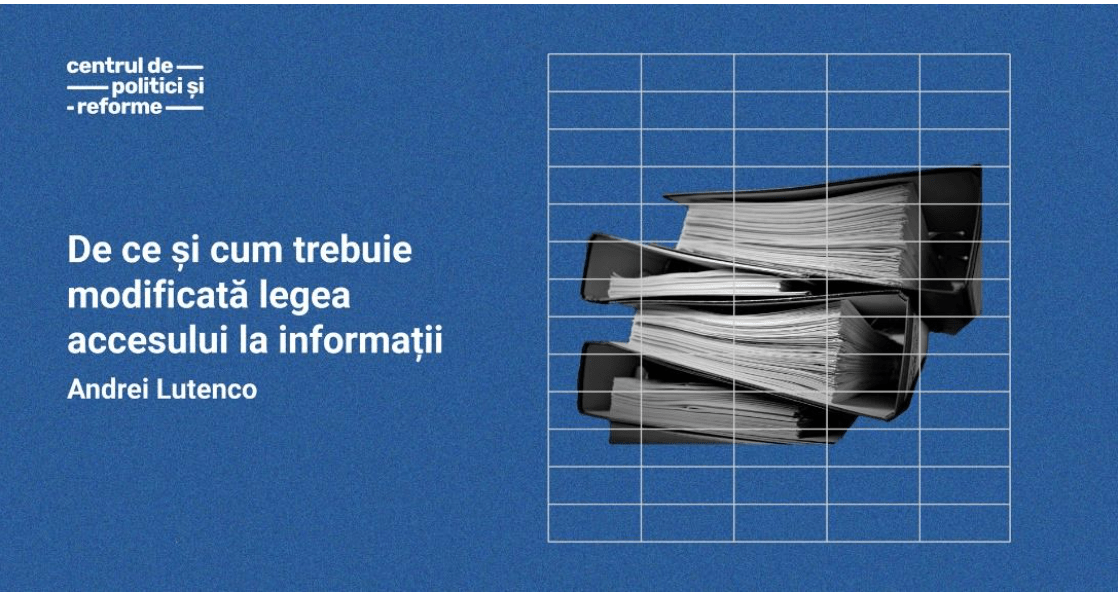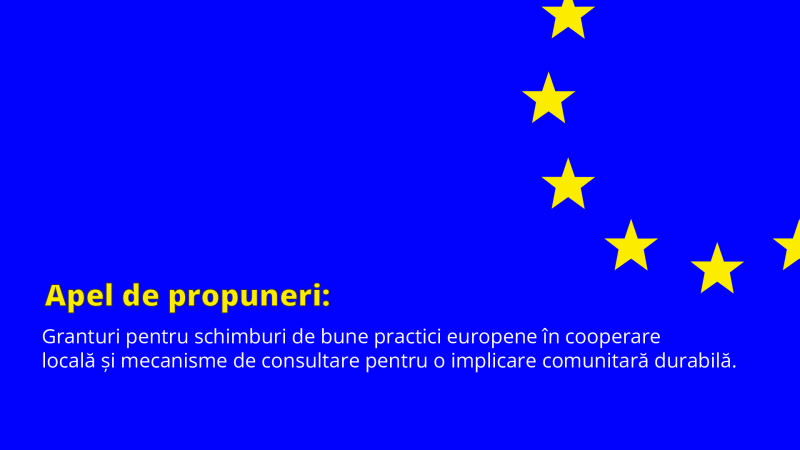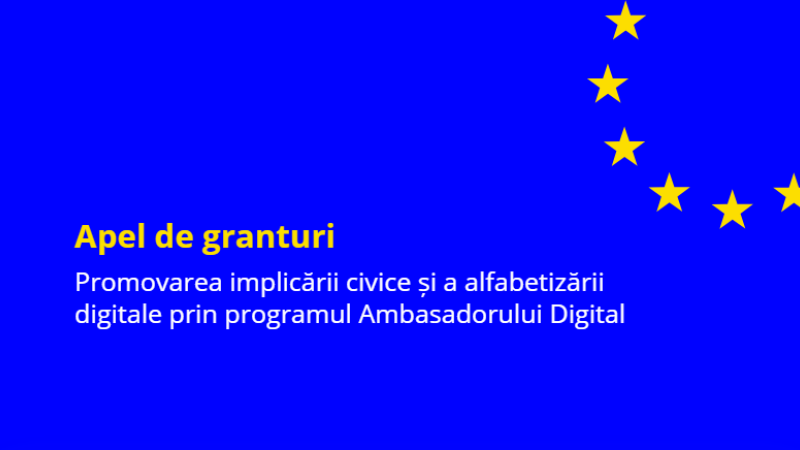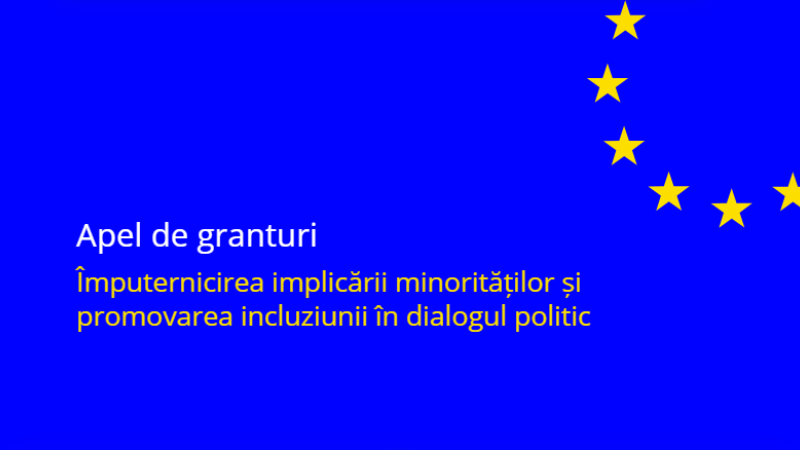
Noua Lege privind accesul la informație adoptată cu asistență Proiectului de Asociere UE-Moldova
Republica Moldova și-a prezentat cererea de aderare la UE la 3 martie 2022, la scurt timp după aceasta Rusia a început invadarea Ucrainei. Comisia Europeană și-a emis avizul cu privire la cererea Republicii Moldova la 17 iunie 2022, iar Consiliul European al UE a acordat Moldovei statutul de țară candidată la 23 iunie 2022. Consiliul European a subliniat că viitorul Republicii Moldova și al cetățenilor săi este în Uniunea Europeană și a solicitat Comisiei Europene să prezinte un raport privind îndeplinirea celor nouă condiții specificate în avizul său. Condițiile se referă la reforma sistemului judiciar, combaterea corupției și a criminalității organizate, de-oligarhizarea, capacitățile de reformă și reforma administrației publice, gestionarea finanțelor publice, inclusiv achizițiile publice, consolidarea rolului societății civile și consolidarea protecției drepturilor omului. Comisia a raportat cu privire la progresele înregistrate în primăvara anului 2023, în plus Comisia va fi prezenta un raport în cadrul pachetului anual de extindere, care va fi publicat în octombrie 2023. Se preconizează că, odată ce vor fi îndeplinite condițiile, Consiliul European va autoriza începerea negocierilor din decembrie 2023, pe care Moldova speră să le înceapă în 2024.
Sporirea implicării societății civile în procesele decizionale la toate nivelurile este una dintre condițiile-cheie ale UE pentru a continua procesul de integrare în UE, iar Moldova a contribuit în mod semnificativ la îndeplinirea acesteia prin adoptarea noii legi care reglementează accesul la informațiile publice.
Legea adoptată la 9 iunie 2023 de Parlamentul Republicii Moldova va impune instituțiile publice să publice mai multe informații în mod pro-activ pe site-urile lor web, să diminueze termenele de prelucrare a cererilor de informații publice și să simplifice controlul jurisdicțional al deciziilor organismelor publice referitoare la accesul la informații de interes public. Legea va intra în vigoare în ianuarie 2024. Proiectul „Sprijin pentru dialog structurat de politici și coordonare a implementării Acordului de Asociere, precum și consolidarea procesului de aproximare legislativă” (Proiectul Asociere Moldova-UE) a fost principalul partener care asistă Ministerul Justiției în procesul de pregătire a noului cadru legislativ în acest domeniu în toate etapele procesului legislativ.
Legea actuală privind accesul la informații, adoptată în 2000, nu respectă standardele internaționale și cele mai bune practici privind transparența autorităților publice. În special, după cum a demonstrat analiza lacunelor furnizată de Proiectul Asociere Moldova-UE, această lege nu promovează transparența pro-activă și asigură aplicarea efectivă a dreptului constituțional la informare, inclusiv a mecanismului de sancționare a încălcărilor acestui drept. În plus, această lege nu asigură monitorizarea practicilor administrative și judiciare, de exemplu colectarea de date privind numărul de cereri de informații publice, precum și inspecțiile și controalele periodice privind modul în care organismele publice își respectă obligațiile în materie de transparență.
Noua legislație elaborată cu sprijinul extins al Proiectului Asociere Moldova-UE abordează majoritatea deficiențelor. Legea nouă extinde numărul entităților care fac obiectul cerințelor de transparență. Acesta conține o definiție mai largă a informațiilor publice, reflectând în special conceptul de transparență consacrat de Convenția de la Trømso, care reglementează acest domeniu la nivelul dreptului internațional. În plus, legea conține o definiție nediscriminatorie a entităților care beneficiază de dreptul de acces la informații. Trebuie remarcat faptul că actuala Lege cu privire la accesul la informație, în pofida garantării constituționale a dreptului universal de acces la informațiile de interes public, limitează acest drept numai la rezidenții Republicii Moldova. Persoanele juridice, precum și străinii care nu sunt rezidenți ai Republicii Moldova nu sunt incluși printre beneficiarii dreptului la informare.
Este important să se sublinieze faptul că noua lege include o gamă largă de informații care urmează să fie divulgate în mod pro-activ pe site-urile instituțiilor publice. Acestea vor include, de exemplu, informații cu privire la:
- date referitoare la structura și bugetul autorității, numărul de angajați/membri, date privind obiectivele și funcțiile acesteia, date de contact;
- date privind planificarea și execuția bugetelor de către autoritatea publică;
- date privind achizițiile publice planificate, achizițiile publice finalizate, rapoarte de monitorizare privind contractele de achiziții publice, alte informații relevante;
- date privind vizitele oficiale și deplasările de afaceri în străinătate ale personalului autorității publice, inclusiv costul și sursa de finanțare a cheltuielilor;
- date privind ocuparea forței de muncă: lista concursurilor pentru posturile vacante existente, date de contact ale persoanei responsabile de organizarea concursurilor, cerințele de calificare pentru candidații pentru posturile vacante, formularul de participare la concurs, lista documentelor care trebuie depuse și termenul limită de depunere a acestora, lista persoanelor admise la concurs, precum și lista persoanelor care au câștigat concursul.
Restricțiile legitime în ceea ce privește accesul la informații sunt cuprinse într-o listă restrânsă și specifică. Aplicarea acestora va impune organismele publice să efectueze așa-numitul test de interes public, și anume să demonstreze că necesitatea de a restricționa accesul la informații prevalează în mod clar asupra interesului public în ceea ce privește asigurarea accesului la acestea. Testul se efectuează printr-o procedură simplificată de revizuire a deciziilor instituțiilor publice referitoare la accesul la informații. Asigurarea accesului direct la instanță, combinată cu măsuri speciale de simplificare și accelerare a procedurii judiciare, ar trebui să sporească eficacitatea controlului jurisdicțional în cauzele legate de accesul la informații.
În cele din urmă, noua lege conține o listă detaliată a încălcărilor dreptului la informații supuse răspunderii juridice, combinată cu un nou regim de răspundere juridică, conform căruia instanța va impune sancțiuni în timp ce examinează plângerile împotriva deciziilor și omisiunilor instituțiilor publice privind accesul la informații. În prezent, eficacitatea punerii în aplicare este afectată de lipsa unei liste detaliate a încălcărilor dreptului la informare care face obiectul sancțiunilor și al mecanismului ineficace de impunere a sancțiunilor, bazându-se pe dispozițiile Codului Contravențional și ale Codului penal. Conform Codului Contravențional, încălcarea deliberată a prevederilor legale privind accesul la informație se sancționează cu amendă aplicată persoanei responsabile. Cu toate acestea, această dispoziție foarte generală este rareori utilizată în practică.
Potrivit articolului 180 din Codul penal, încălcarea intenționată de către funcționarul responsabil a dreptului la informare care a cauzat prejudicii considerabile drepturilor și intereselor protejate de lege ale persoanei care a solicitat informații, se sancționează cu amendă, cu sau fără privarea de dreptul de a ocupa anumite funcții sau de a exercita anumite activități pe o perioadă de până la 3 ani. Cu toate acestea, această dispoziție din Codul penal rămâne ,literă moartă’. Potrivit datelor obținute de Ministerul Justiției, nu au fost înregistrate niciun caz bazat pe articolul 180 din Codul penal.
Având în vedere aceste îmbunătățiri, evaluarea generală a noii legi privind accesul la informațiile de interes public este pozitivă. Este clar că acest lucru marchează un pas important înainte, în comparație cu cadrul legislativ actual. Legea este în conformitate cu Convenția de la Trømso și cu alte standarde internaționale din acest domeniu.
Proiectul de Asociere Moldova-UE își va continua asistența prin acordarea de sprijin pentru implementarea noului cadru legislativ. Asistența va include pregătirea comentariilor practice la lege, precum și instruirea autorităților publice și a judecătorilor cu privire la aplicarea noii legi.
Proiectul finanțat de UE „Sprijin pentru dialog structurat de politici și coordonare a implementării Acordului de Asociere, precum și consolidarea procesului de aproximare legislativă” are ca scop creșterea capacităților Guvernului Republicii Moldova și ale altor instituții naționale cheie în implementarea Acordului de Asociere UE-Moldova. După primirea de către Republica Moldova a statutului de țară-candidat la UE, proiectul este gata să ofere asistență avansată pentru consolidarea administrației moldovenești pentru a fi pregătită pentru următorii pași în procesul de integrare în UE.


